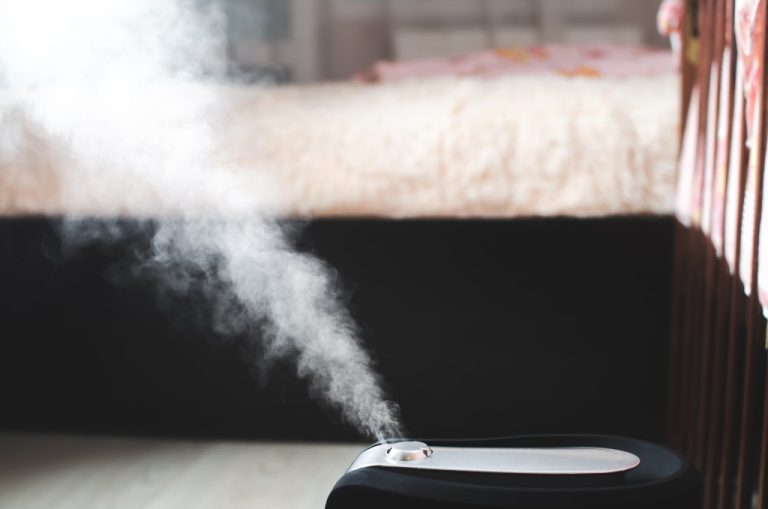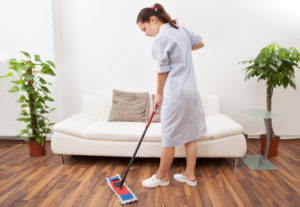• High humidity is caused by an increase in the air’s moisture.
• High humidity can cause asthma attacks, mold and mildew growth, dust mites, and Lyme Disease.
• It is important to use heating and cooling systems, ventilation and airflow, dehumidifiers, and humidity monitors to reduce humidity.
• Prevent future problems with high humidity by checking for leaks and regularly maintaining heating and cooling systems.
When it comes to the air quality in your home, humidity levels play an important role. High humidity can create several health risks for you and your family, so it’s important to know what those risks are and how to manage them. Here’s a look at why high humidity can impact your health and safety.
Health Risks Associated with High Humidity
High humidity is caused by an increase in moisture in the air. While humidity isn’t necessarily dangerous in and of itself, it can create several health risks. You may feel uncomfortable when there is high humidity or your breathing gets heavier. High humidity can increase the risk of the following health issues:
Asthma Attacks
Asthma is a chronic respiratory condition that affects the airways. High humidity can make breathing harder and trigger asthma attacks, especially in children. Asthma attacks can be triggered by damp and humid environments, especially if mold or mildew is present. The high humidity levels make it difficult for the air to circulate in your home and can cause trapped moisture that triggers asthma attacks.
Mold and Mildew
Moisture build-up caused by high humidity can also result in mold and mildew growth in your home. These fungi release spores into the air, which can cause allergic reactions like sneezing, coughing, and an itchy throat. Mold and mildew can also cause skin irritation, eye infections, and respiratory problems in people with compromised immune systems.
Dust Mites
High humidity encourages dust mite growth. Dust mites are microscopic bugs in carpets, furniture, mattresses, and fabrics. They feed on flakes of human skin and thrive in humid environments. Dust mites can cause allergies, asthma symptoms, and respiratory infections.
Lyme Disease
Lyme disease is a bacterial infection that is spread by ticks. High humidity increases the number of ticks and their activity. This is because ticks need moisture to survive and are most active in humid environments. When they bite, they can transmit the bacteria that causes Lyme disease. It can cause muscle pain, fatigue, fever, chills, and headaches.

Addressing the Health Risks of High Humidity
It shouldn’t be ignored if humidity has caused health problems in your home. You can address the issue by taking steps to reduce the humidity level in your home. Here are some ways you can do that:
Heating and Cooling Systems: When temperatures get too high, air conditioners can help reduce humidity levels. If temperatures drop too low, heaters with a built-in humidifier will add moisture back into the air.
Ventilation and Airflow: Ensuring your home is properly ventilated is important for controlling humidity levels. Keep windows open and make sure air can flow freely around your home. You can also use fans to help with this process.
Dehumidifiers: A dehumidifier will pull moisture out of the air and reduce humidity levels. It’s important to empty the water collected by a dehumidifier regularly to continue working properly.
Humidity Monitoring: Using a humidity monitor is an easy way to keep track of moisture levels in your home. These devices measure relative humidity and alert you when the levels get too high. That way, you can take action to reduce humidity and protect your health.
Consult with a Doctor: If you suspect that you or someone in your family has an infection, such as Lyme disease, it’s important to consult with a doctor immediately. Treatment for chronic Lyme disease typically involves antibiotics, so it’s important to get treatment as soon as possible to avoid any long-term health complications.
Avoiding Future Problems with High Humidity
Once you’ve addressed humidity issues in your home, it’s important to prevent them from occurring again. Here are some tips for avoiding future problems with high humidity:
- Check for Leaks—Make sure there are no leaks in your walls or ceilings that could be causing moisture build-up. If you find any, contact a professional to fix them as soon as possible.
- Clean and Disinfect—Clean your home regularly and disinfect any surfaces harboring mold or mildew growth. Pay special attention to bathrooms, kitchens, and other areas where moisture is present.
- Eliminate Standing Water—Check around your home for any sources of standing water and eliminate them. This includes puddles in basements, leaky faucets, and pools of water around air conditioning units.
- Regular Maintenance—Have your heating and cooling systems serviced regularly to ensure they are working properly. You should also check your dehumidifier often to ensure it’s working properly.

You may not be aware at first, but high humidity can cause many health problems in your home. It’s important to be aware of the risks of high humidity and take steps to address them. Using these tips, you can reduce humidity levels and keep your home healthy and comfortable.













